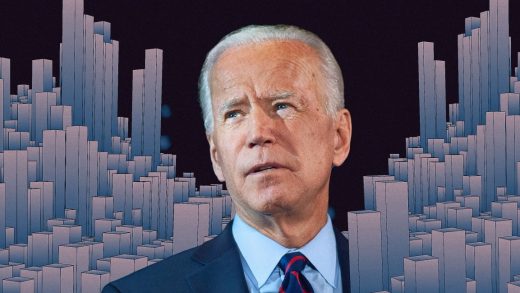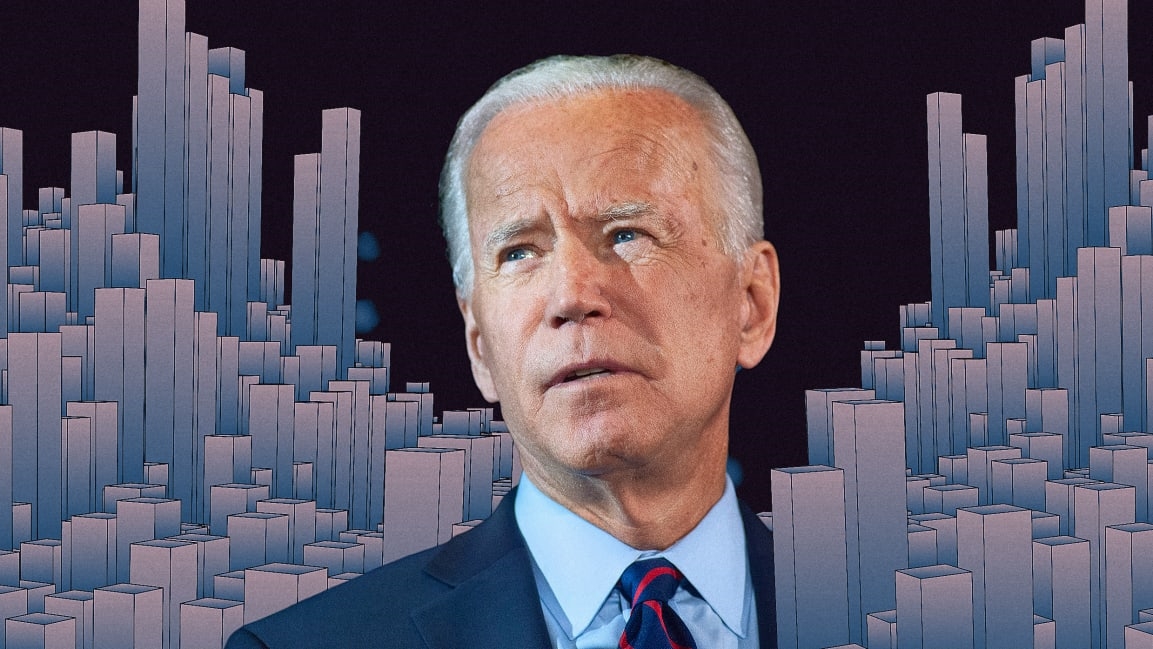If Biden wins, corporate purpose will face a higher bar
When Joe Biden rolled out his economic plan last month, he said the old idea that corporations only exist to deliver profits to shareholders and nothing else is “an absolute farce.” Companies also have a responsibility to their workers and our country. It’s a signal that the debate over “corporate purpose” is headed toward a crossroads this November.
In recent years, many CEOs have been pushed by employees, consumers, and investors to speak out on controversial social and economic issues. And they’ve found that taking a stand against a historically unpopular president and his most extreme policies has been a surefire way to win praise and demonstrate their values. But the bar for corporate conscience could soon get a whole lot higher.

If Biden wins, expectations for what it takes to be a values-driven company will increase and business leaders will have to step it up. A glossy ad campaign or generous philanthropic commitment won’t be enough. Getting your own house in order—which many companies still fail to do—will be necessary, but not sufficient. Without the foil of President Trump and his antics, CEOs will have to back specific policy proposals, build coalitions, and put real political muscle behind their principles.
After years on the front lines of politics and government trying to make progress on challenges like climate change and economic inequality from the public sector, we started an agency to help companies committed to doing their part from the private sector. No company is perfect, but when they use the full power of their brand in service of their values, they can change hearts and minds in a way that often can’t be achieved in the stalemate of partisan politics.
Now that Joe Biden has won the Democratic nomination, it’s time for more business leaders to think about how they might navigate the next phase of “stakeholder capitalism.” Here are three lessons from companies we’ve worked with that point the way forward.

First, under a Biden administration, companies won’t have Trump to kick around anymore, so they’ll need to take bold, affirmative stands to show their values. Whether it was withdrawing from the Paris climate agreement, banning Muslims from entering the United States, or saying that there were “very fine people” among the white supremacists in Charlottesville, Trump has provided ample opportunity for CEOs to distinguish themselves by criticizing actions far outside the cultural mainstream of corporate America. If Biden replaces Trump, there will be fewer easy chances to express outrage and more hard choices to make about specific policies and legislation that could become law.
Business leaders seeking a model can look to Levi Strauss & Co.’s activism on gun violence. Back in 2016, after a customer accidentally shot himself in a Levi’s store, the company asked shoppers to stop carrying firearms. It was the right thing to do, but did little to drive the kind of systemic change needed to address a national epidemic of violence—the same way that a company reducing its own carbon footprint but keeping silent on environmental regulations is not really taking on the climate crisis.
After the Parkland shooting in 2018, LS&Co. decided it had to do more. The company started quietly funding front-line nonprofits and youth activists, and organized other businesses to lobby Congress for concrete reforms such as universal background checks. The NRA slammed the company for “a repulsive insult to the nation’s 100 million gun owners,” and hate mail poured in. But as CEO Chip Bergh told Fast Company, “It’s imperative that companies not be afraid to weigh in on the issues that are really impacting the world.”

Second, CEOs who want to be seen as leaders will have to use their market power—not just their voice—to drive systemic change. For example, last year, Nike used the halo of its brand to persuade other companies like Gap and H&M to agree to stop shipping cargo through the Arctic, protecting its fragile ecosystem. This year, BlackRock, the world’s largest asset manager, demanded that firms it invests in prioritize sustainability and disclose plans for dealing with risks associated with climate change, which it sees as a major threat to long-term profitability. It has used its clout as a shareholder to vote against executives and directors at more than 50 companies that have failed to make progress, including ExxonMobile and the European gas company Fortum.
Third, there’s going to be more scrutiny of companies when their campaign contributions and lobbying budgets contradict their stated values—like when Dow Chemical or Facebook criticize Trump for ditching the Paris Agreement but funnel money to politicians who block key environmental protections. Even more than before, CEOs will be expected to invest real political capital in the causes they claim to support. Business leaders have never been shy about using their money and influence to elect candidates and pass laws when it means lowering their taxes or easing regulations.
CEOs who say they are serious about the climate crisis and racial justice will need to be just as aggressive. Patagonia, which has funded grassroots environmental activists for years and sued the Trump administration to stop the plunder of protected wilderness, broke new ground in 2018 by endorsing U.S. Senate candidates Jon Tester in Montana and Jacky Rosen in Nevada because of their pledge to defend public lands and fight climate change. The company even aired TV ads during the campaign.
A Biden presidency will change the game, but business leaders shouldn’t wait to step up. Already, two-thirds of Americans say companies should “stand up for what they believe politically regardless of whether or not it is controversial.” When asked to describe companies that never take a position on a political or social issue, they chose words like “out-of-touch,” “irresponsible,” and “unpatriotic.”
Instead of viewing this as unwanted pressure, CEOs should see it as an opportunity. Companies doubling down on their values right now are proving more resilient in the current crisis, just as they did in the last recession. And one lesson from this plague-and-violence-scarred year is that a healthier, fairer society would produce a stronger, more resilient economy for us all.
Nick Merrill and Dan Schwerin are the cofounders of Evergreen Strategy Group.
(26)



